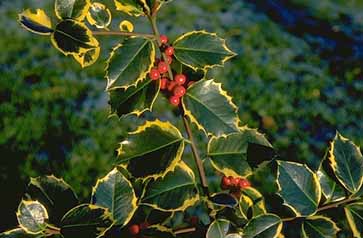Spring Quiet
by Christina Rossetti (1830-1894)

Gone were but the Winter,
Come were but the Spring,
I would go to a covert
Where the birds sing;
Where in the whitethorn
Singeth a thrush,
And a robin sings
In the holly-bush.
Full of fresh scents
Are the budding boughs
Arching high over
A cool green house;
Full of sweet scents,
And whispering air
Which sayeth softly:
‘‘We spread no snare;
‘‘Here dwell in safety,
Here dwell alone,
With a clear stream
And a mossy stone.
‘‘Here the sun shineth
Most shadily;
Here is heard an echo
Of the far sea,
Though far off it be.’’

(The Poetical Works of Christina Georgina Rossetti, edited by W.M. Rossetti. London, Macmillan, 1908. p. 103)
There is a gentle movement in this poem, as if we are walking through a wood, looking at the birds singing, smelling the blossom, listening to the wind, coming to a stream, picking up a stone, and finally hearing the distant murmur of the sea. But we might not be walking, we might be in one place, the covert, which forms a natural house where all these things occur together. Or perhaps rather than walking through a wood, we are simply following the imagination of the poet as she creates a series of mental pictures that bring her some ease. For this journey through nature is being invented, not remembered.
Robert Graves has noted how precocity in poetry writing, almost unknown in men, is fairly common among women, but it is still remarkable that this mature composition should have been done by a girl of sixteen. After a robust childhood, Rossetti fell ill when she was fifteen, and was to have a long invalid existence, but even without this biographical snippet you can detect in the poem the ideas of convalescence and a future recovery. Winter is now, the bad time, and Spring the time to look forward to. The two voices in the poem, the poet's own and Nature's reply, are her desire for a better time and then what she wants to hear, a promise that the better time will come. Nature promises safety, a stream that can provide drink, a stone that might be pressed to a forehead, a place which is warm, but in the shade, and quiet. (The far off sea is quiet: the echo of it quieter still.)
The easy rhymes and loose grammar, with both modern and Elizabethan
verb-endings, capture the mood of a new freedom. The extra final line, part of
the sea's echo, can also be the repeating wave-fall of the sea which the poet
is finally left listening to.
Back to the index